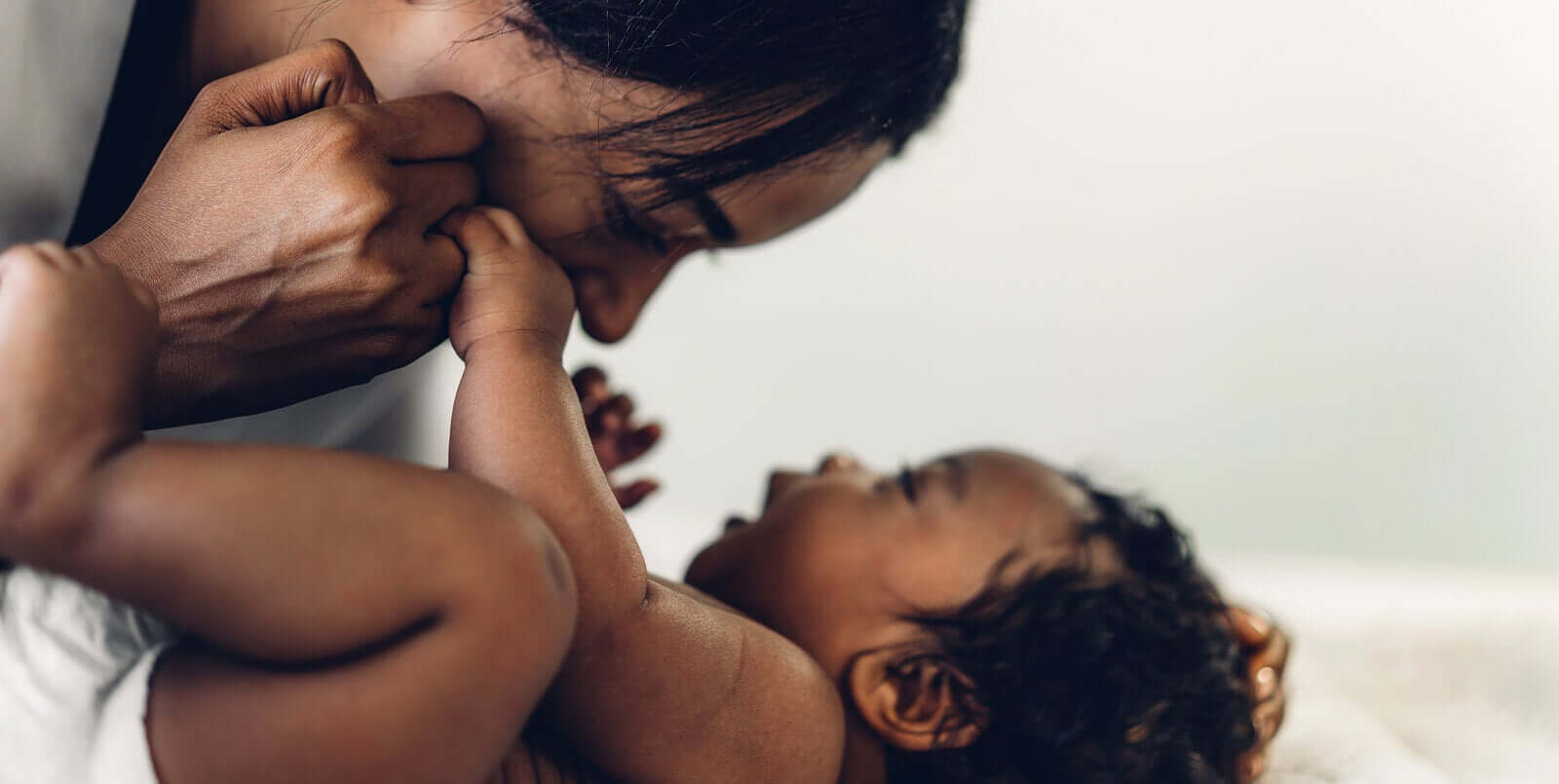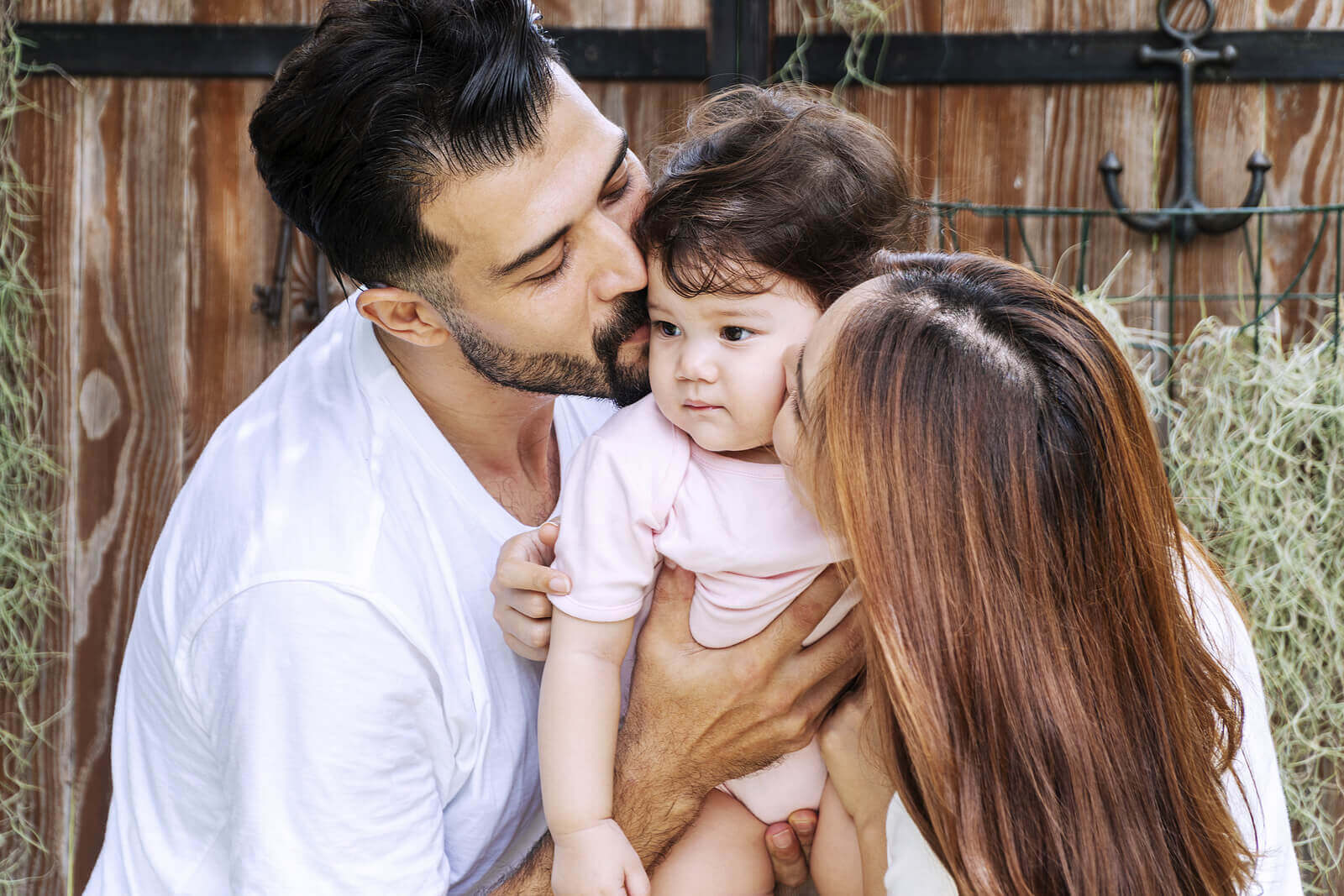Emotional Development from 6 Months to 1 Year of Age

Emotional development begins at birth and progressively evolves as babies grow and relate to the world. Thus, the first emotional bonds that children establish will determine the way in which they’ll express and interpret their own, and other people’s, emotions.
During the first months of life, babies are able to express basic emotions, such as pleasure and displeasure. From the age of 6 months onwards, they begin to feel increasingly complex emotions. This is when you’ll be able to appreciate the most significant changes in your child’s emotional development.
Below, we’ll tell you about the different phases they go through from six months to one year of age.
“All our lives began with human affection as our first support. Children who grow up surrounded by affection smile more and are kinder. Generally, they are more balanced.”
– Dalai Lama –

Emotional development from 6 months to 1 year old
You have to take into account that each child is different and evolves at his or her own pace. However, when we talk about emotional development, we can mention several phases that children usually go through at certain ages.
We’re now going to describe each of the emotional stages that babies go through from 6 to 12 months.
Emotional development from 6 to 7 months
Between 6 and 7 months, babies begin to form the attachment system and show a preference for familiar people, especially primary caregivers, and a rejection of those they consider strangers.
This is when they begin to react with fear, tension and also anxiety to the unknown or in situations where they have to spend some time separated from their attachment figures (mothers, fathers, etc).
From 8 to 10 months
From about 8 months, children show a clear intent to communicate. They need to relate to other people and feel involved in the social world around them.
This helps them develop the ability to identify, interpret and even respond to other people’s expressions and emotions, especially in those who are most familiar to them. In this way, they’ll regulate their reactions and behavior according to what these transmit to them in any given situation.
In addition, between 9 and 10 months they’re already able to easily express joy, displeasure, anger and rage.
From 10 to 12 months
From 10 to 12 months of age, one can observe how children regulate and express their feelings better. Babies become more aware of their emotions and express them through gestures, attitudes, visual contact and different tones of voice. Some children, at one year of age, are even able to express in words some of the emotional states they’re experiencing.
In this way, babies are able to make themselves heard in their surroundings, and establish richer and more intense communicative and emotional relationships with the people around them.
About babies’ emotional development
From birth, babies have the need to create bonds of affection that allow them to safely explore their physical and social environment. This helps them to gradually, yet fully, develop their emotional intelligence.

As stated by the American psychologist, journalist and writer Daniel Goleman:
“Emotional intelligence begins to develop in the early years. All the exchanges that young children have with their parents, teachers and other people carry emotional messages.”
Therefore, mothers, fathers or other adults who act as primary caregivers for infants should strive to establish enriching and stimulating communication with them in a climate that promotes love and mutual respect.
In this way, children can acquire emotional skills more easily. They’ll cope more easily with different social situations, build their identity, forge positive self-esteem, and develop self-confidence. They’ll also become increasingly autonomous and independent.
In short, working on emotions from the first months of a baby’s life is very important for a full and balanced development.
Emotional development begins at birth and progressively evolves as babies grow and relate to the world. Thus, the first emotional bonds that children establish will determine the way in which they’ll express and interpret their own, and other people’s, emotions.
During the first months of life, babies are able to express basic emotions, such as pleasure and displeasure. From the age of 6 months onwards, they begin to feel increasingly complex emotions. This is when you’ll be able to appreciate the most significant changes in your child’s emotional development.
Below, we’ll tell you about the different phases they go through from six months to one year of age.
“All our lives began with human affection as our first support. Children who grow up surrounded by affection smile more and are kinder. Generally, they are more balanced.”
– Dalai Lama –

Emotional development from 6 months to 1 year old
You have to take into account that each child is different and evolves at his or her own pace. However, when we talk about emotional development, we can mention several phases that children usually go through at certain ages.
We’re now going to describe each of the emotional stages that babies go through from 6 to 12 months.
Emotional development from 6 to 7 months
Between 6 and 7 months, babies begin to form the attachment system and show a preference for familiar people, especially primary caregivers, and a rejection of those they consider strangers.
This is when they begin to react with fear, tension and also anxiety to the unknown or in situations where they have to spend some time separated from their attachment figures (mothers, fathers, etc).
From 8 to 10 months
From about 8 months, children show a clear intent to communicate. They need to relate to other people and feel involved in the social world around them.
This helps them develop the ability to identify, interpret and even respond to other people’s expressions and emotions, especially in those who are most familiar to them. In this way, they’ll regulate their reactions and behavior according to what these transmit to them in any given situation.
In addition, between 9 and 10 months they’re already able to easily express joy, displeasure, anger and rage.
From 10 to 12 months
From 10 to 12 months of age, one can observe how children regulate and express their feelings better. Babies become more aware of their emotions and express them through gestures, attitudes, visual contact and different tones of voice. Some children, at one year of age, are even able to express in words some of the emotional states they’re experiencing.
In this way, babies are able to make themselves heard in their surroundings, and establish richer and more intense communicative and emotional relationships with the people around them.
About babies’ emotional development
From birth, babies have the need to create bonds of affection that allow them to safely explore their physical and social environment. This helps them to gradually, yet fully, develop their emotional intelligence.

As stated by the American psychologist, journalist and writer Daniel Goleman:
“Emotional intelligence begins to develop in the early years. All the exchanges that young children have with their parents, teachers and other people carry emotional messages.”
Therefore, mothers, fathers or other adults who act as primary caregivers for infants should strive to establish enriching and stimulating communication with them in a climate that promotes love and mutual respect.
In this way, children can acquire emotional skills more easily. They’ll cope more easily with different social situations, build their identity, forge positive self-esteem, and develop self-confidence. They’ll also become increasingly autonomous and independent.
In short, working on emotions from the first months of a baby’s life is very important for a full and balanced development.
All cited sources were thoroughly reviewed by our team to ensure their quality, reliability, currency, and validity. The bibliography of this article was considered reliable and of academic or scientific accuracy.
- Enesco, I. (Coord.) (2003). El desarrollo del bebé. Cognición, emoción y afectividad. Madrid: Alianza.
- Ibarrola, B. (2014). La educación emocional en la etapa 0-3. 21 Jornada de la Crianza como base de la salud mental.
This text is provided for informational purposes only and does not replace consultation with a professional. If in doubt, consult your specialist.








